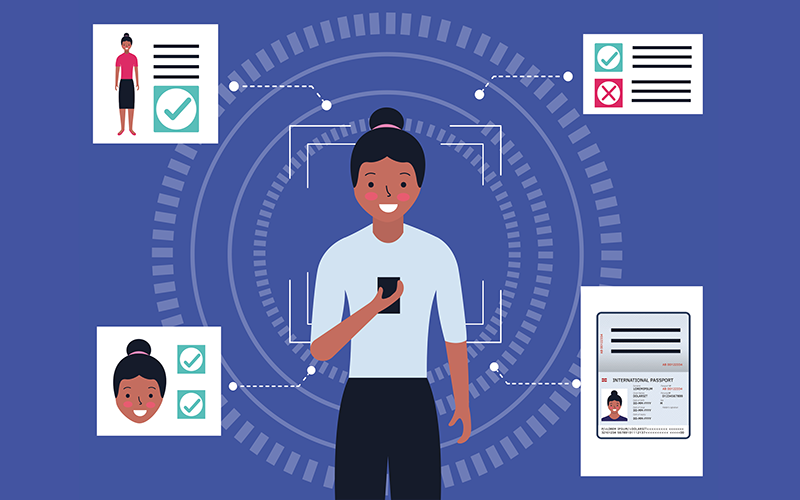Special Report - Technology: how can technology protect your agency? - SPONSORED

Tony Machin, CEO of TrustID, discusses how the pandemic has affected Right to Work compliance checks and how recruiters can prepare for Brexit and beyond
Like most other office-based workers, recruiters have had to rapidly adapt to a new world of compliance due to remote working and legislative uncertainty. In a business that’s all about people, this has brought unique challenges. Establishing candidates’ Right to Work (RtW), for example, can be particularly problematic, as it has traditionally relied on face-to-face meetings and visual checks on original identity documents. But, as has been said, ‘adversity breeds creativity’. New and innovative technology, designed to overcome the problems of remote recruitment, can bring advantages to recruiters and help smooth uncertainty over post-Brexit employment checks.
Right to Work checks in the Covid era
Prior to the pandemic, recruiters could conduct compliant RtW checks remotely if they had an applicant’s original identity document and checked it with the candidate ‘present’ over a video link, or if the candidate had a Biometric Residence Permit (BRP) or EU Settlement scheme (EUSS) ‘share code’. However, getting to see original documentation has become more difficult and not everyone has a BRP or EUSS share code. So, the UK government has temporarily allowed recruiters to check a candidate's RtW using scanned copies or photos of identity documents. You can then arrange a video call and ask the applicant to hold up the original documents to check against the digital copy, record the date you made the check and mark it as “adjusted check undertaken on [insert date] due to Covid-19”.
There’s no date set yet for these temporary measures to end, but guidance says that the government will allow an 8-week window to carry out the required checks of original documents once they do finish.
With the number of fake documents in circulation increasing, preventing fraudsters from slipping through the net is ever more challenging. In the past year, our customers saw fake identity documents claiming to represent 52 different nationalities. While the updated guidance makes remote checks easier, many recruiters may not be confident checking documents remotely without being able to touch and see original documents and may also be relying on a dispersed team with minimal document training. So, remote checking can also mean an inconsistent, uncertain and less robust process for recruiters.
Brexit and beyond
Covid-19 isn't the only issue affecting RtW checks today: the post Brexit world has also raised challenges. The Home Office has not yet published full details on how to check RtW of EEA nationals not on the EUSS after 30th June 2021 although we do know that recruiters will no longer be able to accept EU passports or ID cards as evidence from those applicants and should instead ask them to provide an appropriate visa. The lack of absolute clarity is understandably causing some concern, with many organisations turning to expert identity service providers for advice on remaining complaint during these changing times.
Why consider electronic checking to support your RtW processes?
The good news is that there are several straightforward, affordable ways to protect your agency from the risks of illegal working and remain compliant with RtW legislation, even in challenging times.
How you choose to carry out identity checks will depend on your processes, internal skills and the perceived level
of risk in your sector. For example, if you’re recruiting a high number of temporary candidates, particularly in a sector like construction, your risk of seeing fake identity documents is relatively high. TrustID customers working with the construction sector accounted for 38.2% of all fraudulent documents in 2020 and three in every 100 documents checked by them were fake.
Identity checking experts can help with online tools which offer additional security checks on global identity documents, even from a scanned copy. These specialist providers may also offer additional features, for example, a remote-upload option for applicants to send copies over a secure link, or higher-level security checks, such as facial recognition software, which checks a candidate’s selfie against the photograph in their identity document to verify that they match.
A good identity service provider can quickly assess whether a document is real and offer guidance on the right documents to request from applicants as evidence of RtW in the UK, even as immigration guidance changes.
Investing in a new process during uncertain times may feel risky, so look for a service which offers a low minimum order or no long-term contract. As we don’t know how long restrictions will remain, or what the finalised post-Brexit guidance will be, this type of service gives you the flexibility you need to protect your agency in the short term.
For more information, please visit: https://www.trustid.co.uk or call 0118 466 0822.
